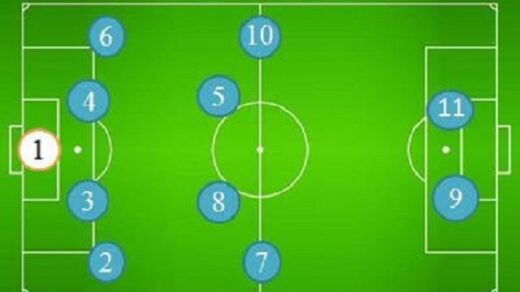Clubs have begun to produce football memory data; Playbook System, as a result of the evolution of football and the increase in tactical wars on the field in recent years.
In recent years, there have been many advancements in football development, the infrastructure of football teams, and effective tactics of A-teams, offensive and defensive games, zone and zone transition games on the field. Different terminology is now being used in football. Furthermore, several innovations discovered as we experiment contribute to the growth of football. The in-club system is one of them. So, what exactly is the “Playbook System”?
Playbook System in Football Clubs;
The term “playbook system” was coined by American football. A club can be defined as a data center where match analysis, tactical suitability, and player tasks are stored. It is the name given to the system built with this data, which is recorded in order to adapt and teach the tactics that must be done to the team in order for a detailed game like American football to both defend and attack as a team, as well as to develop the problems in the application.
After 1980, many teams in the history of American football used this club memory in studies on both growing technology and the production of game memory. Simultaneously, after 1990, other sports such as basketball and baseball began to gain popularity. Even though this approach was trialed in football in the mid-1990s, it was not institutionalized until the early 2000s.
Its main goal is to establish a football club as a data center that will support the football players, technical staff, and infrastructure development by merging match and opponent analysis, tactical suitability, scouting system, football player psychology/development, and club cultures.

Implementation of the Playbook System and its Effect on the Club?
The system should be regarded as the football club’s team data. In a team, which roles and tasks the players will perform better in, how they will or should perform in in-game formations, football player statistics, the preference of the football player when he meets the ball for the first time, video teaching of the tactics that the players should employ, football discipline, club culture, tactics assisting the technical committee, football player, competitor analysis, and so on. Its goal is to increase the club’s success by implementing the issues.
The first step should be to set up the data system. At this point, he must set up a web-based system for recording video recordings and football player data. It is critical to identify the person who will be responsible for the establishment and implementation of this system. Following that, the A team and infrastructure teams’ training records and statistics should be entered. This way, even during training, you can observe how the players behave and operate. It will be possible to obtain information on which deficiencies exist and how they should be addressed.
The data on the players who are being investigated or watched for the A team, as well as the infrastructure, are logged in this system in the second stage. Beginning the system’s active engagement in club transfer policy and tactical analysis. The effective use of statistical data and the implementation of football player training and training through the system.
The third stage is a method that is long-term fit for the club’s aims and may be used effectively by any coach or management who comes to the club. Simultaneously, it is vital to stimulate the system’s functionality by undergoing the necessary training for its regular use.
Clubs Implementing Playbook System;
Considering that it has been many years since such a system was discovered. It would be more accurate to say that there is no need to rediscover America. Many European clubs that have created club data are implementing this. E.g; Liverpool, Manchester City, Barcelona, Bayern Munich, B. Dortmund etc. clubs do it.



